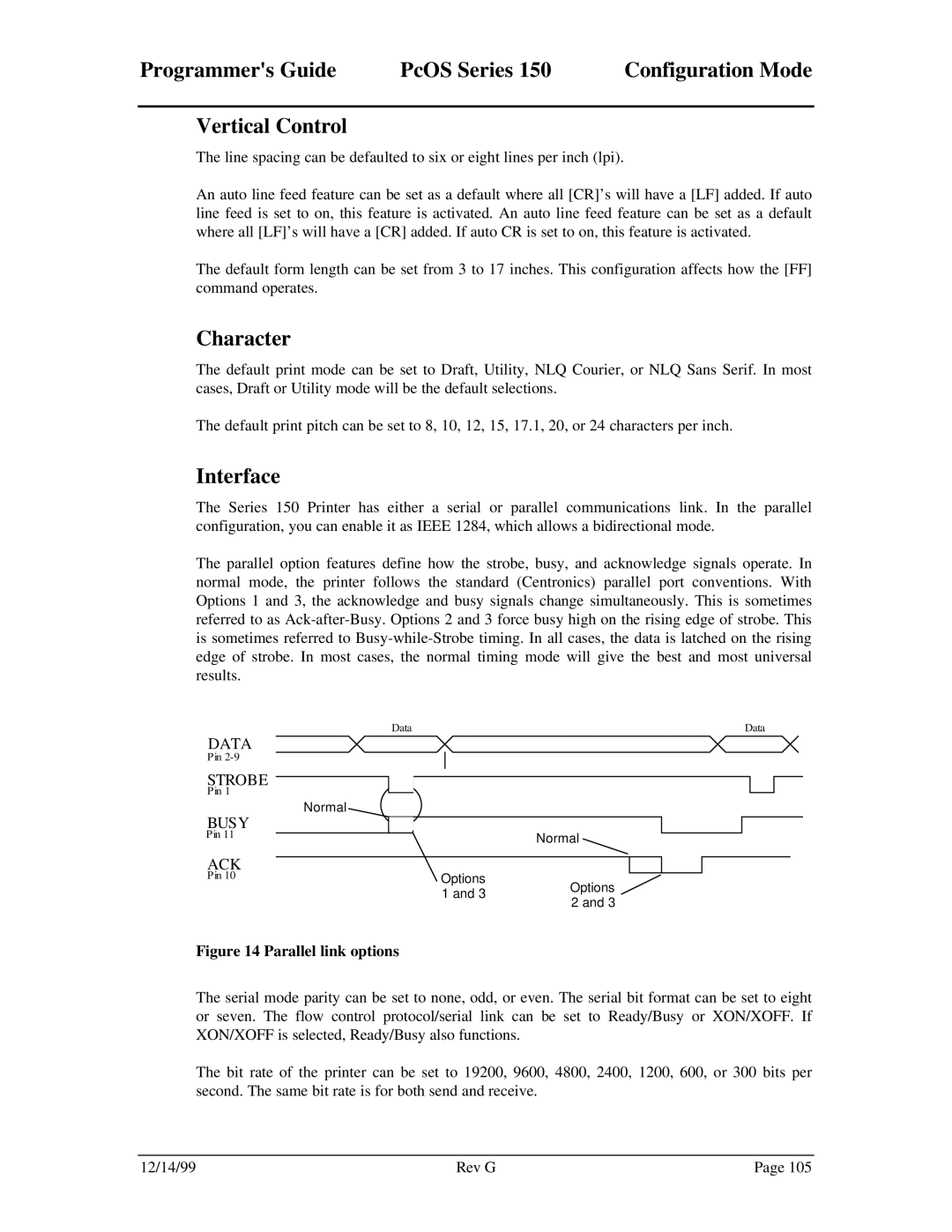
Programmer's Guide | PcOS Series 150 | Configuration Mode |
Vertical Control
The line spacing can be defaulted to six or eight lines per inch (lpi).
An auto line feed feature can be set as a default where all [CR]’s will have a [LF] added. If auto line feed is set to on, this feature is activated. An auto line feed feature can be set as a default where all [LF]’s will have a [CR] added. If auto CR is set to on, this feature is activated.
The default form length can be set from 3 to 17 inches. This configuration affects how the [FF] command operates.
Character
The default print mode can be set to Draft, Utility, NLQ Courier, or NLQ Sans Serif. In most cases, Draft or Utility mode will be the default selections.
The default print pitch can be set to 8, 10, 12, 15, 17.1, 20, or 24 characters per inch.
Interface
The Series 150 Printer has either a serial or parallel communications link. In the parallel configuration, you can enable it as IEEE 1284, which allows a bidirectional mode.
The parallel option features define how the strobe, busy, and acknowledge signals operate. In normal mode, the printer follows the standard (Centronics) parallel port conventions. With Options 1 and 3, the acknowledge and busy signals change simultaneously. This is sometimes referred to as
Data | Data |
DATA
Pin
STROBE
Pin 1
Normal
BUSY
Pin 11
ACK
Pin 10
Normal
Options
1 and 3Options
2 and 3
Figure 14 Parallel link options
The serial mode parity can be set to none, odd, or even. The serial bit format can be set to eight or seven. The flow control protocol/serial link can be set to Ready/Busy or XON/XOFF. If XON/XOFF is selected, Ready/Busy also functions.
The bit rate of the printer can be set to 19200, 9600, 4800, 2400, 1200, 600, or 300 bits per second. The same bit rate is for both send and receive.
12/14/99 | Rev G | Page 105 |
